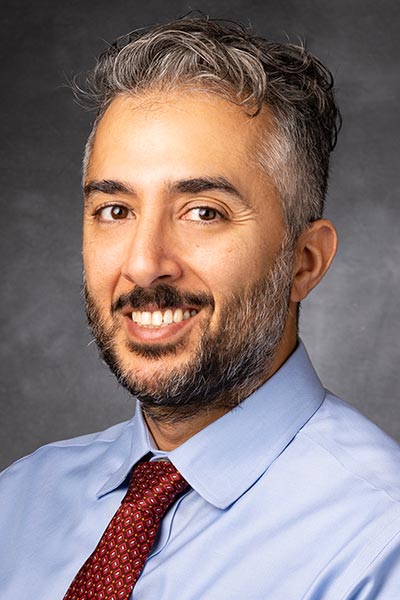Panel to explore new and emerging advances in cancer neuroscience
Over the span of the last century, it was discovered that nerves exist in cancer. However, our understanding of the precise role they play in cancer remains limited. During the session Neuronal Signaling, Unlocking a New Hallmark of Cancer, a panel of experts will discuss new and emerging research on the role of nerves in cancer. The session will be held on Sunday, April 7, from 1 – 2:30 p.m. PT in Room 5 on the upper level of the San Diego Convention Center.

“Our goal in this session is to present the three major components of cancer neuroscience,” said Moran Amit, MD, PhD, The University of Texas MD Anderson Cancer Center, and chair of the session. “This includes how the central nervous system regulates brain tumors, how the peripheral nervous system regulates tumors outside of the brain, and how cancer neuroimmunology will transform clinical oncology.”
Humsa Venkatesh, PhD, Harvard Medical School and Brigham and Women’s Hospital, will begin the session by discussing the neural regulation of glioma progression. Then Sébastien Talbot, PhD, Queen’s University, Kingston in Ontario, Canada, and Karolinska Institutet in Solna, Sweden, will discuss how to harness the nervous system to overcome resistance to immunotherapy in melanoma. Amit will conclude the presentations with a review of clinical trials examining how the peripheral nervous system affects the behavior of tumors and long-term outcomes of patients in the era of immunotherapy.
“This is an exciting time because we already have all the molecules to block or activate almost every branch of the nervous system. Many of those drugs are already out of patent. They’re off-label and very affordable,” Amit said. “We can use these drugs to augment existing therapies in an affordable, accessible manner. And they’re safe—we have used them for over 50 years, and their safety profiles are well established.”
Amit expects this session to appeal to cancer biologists with an interest in tumor microenvironments, neuro-oncology and neuroscience enthusiasts, and attendees involved with clinical trials.
“This session will be a great opportunity to meet key players in the field and spark a discussion in a new, evolving field,” he said. “Only a few times in life, if any time at all, do we get a chance to see a field evolving in front of our eyes. Cancer neuroscience is in its inception. We’re where cancer immunology was 50-60 years ago. So, it’s a great opportunity for anyone who wants to look into something that has a lot of room for new people and new ideas.”
More from the AACR Annual Meeting 2025
View a photo gallery of scenes from Chicago, continue the conversation on social media using the hashtag #AACR25, and read more coverage in AACR Annual Meeting News.

